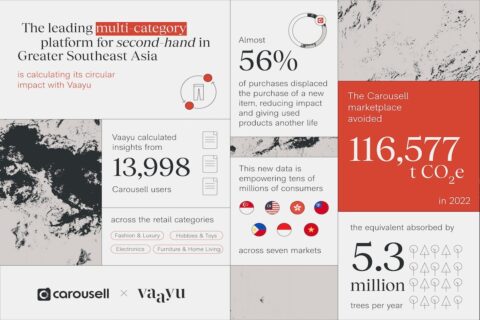
As an industry, anaerobic digestion is seldom celebrated and often misunderstood. In the UK alone, it generates enough energy to heat one million homes a year, as well as 40 million tonnes of digestate for biofertiliser.
The industry already helps reduce UK annual greenhouse gas emissions by 1%, but at full potential could cut them by 6% by 2030. Plus, realising its growth plans could fuel the UK bus fleet six-times over, or 97% of HGVs.
Anaerobic digestion (AD) is also in the business of job creation: currently, the industry employs over 3,500 people in the UK, with scope to provide over 30,000 new green jobs directly, plus the same number again indirectly.
So, how does this ready-to-use technology actually work?
Well, out of the 674 AD plants in the UK, just over 100 treat solely food waste, over three times as many treat agricultural wastes and 164 wastewater, while the rest treat a combination of different organic wastes.
All are turning what we perceive as ‘waste’ organic material that would otherwise be causing a health hazard and emitting harmful methane emissions, into green energy and natural biofertilisers, demonstrating AD’s role in the circular economy and, therefore, in UK waste policy.
Unfortunately, AD is often misunderstood as simply offering solutions for food waste.
Food waste is only part of the AD story
The latest landmark report from Policy Connect, entitled No time to waste, calls for a Scandinavian approach to waste policy in the UK and argues in favour of Energy from Waste (EfW) versus landfilling.
According to the Anaerobic Digestion and Bioresources Association (ADBA), however, in doing so it commits the mistake of referring to AD solely as a technology for the treatment of food waste.
AD is a widely available circular economy technology — indeed, it has been treating sewage here in the UK for decades — and has been recognised as the preferred technology for managing residual food waste, as acknowledged in the Policy Connect report.
However, its role in recycling wastes to generate energy goes far beyond that. AD treats and, most importantly, recycles, a much greater range of organic wastes into green renewable energy and a low-carbon biofertiliser (digestate), that recovers nutrients and organic matter to help restore depleted soils.
When pledging to achieve Net Zero by 2040, the National Farmers Union identified AD as a key technology to meet its ambitious target, explains NFU Chief Renewable Energy Adviser Jonathan Scurlock:
“AD has a role in agriculture across all scales, using animal manures, crops and crop by-products to create low-carbon gas to replace fossil fuels and petrochemicals, while returning nutrients and organic matter to land — and perhaps in the future to actively remove CO2 from the atmosphere.”
AD is also a vital technology for the treatment of wastewater, says Howard Burton from leading pump and mixer manufacturer, Landia:
“EfW plants certainly have a role to play in recycling some wastes. But, with the increasing amount of digester mixing equipment that we are supplying to UK water companies, we can see first-hand just how valuable a feedstock wastewater sludge is for Anaerobic Digestion plants.”
Lack of awareness is often the underlying cause of this confusion surrounding AD at present, plus its enormous potential for the future, concludes ADBA Chief Executive Charlotte Morton:
“AD and the specificity of our sector remain widely misunderstood. Since this technology by definition has application in many different sectors, AD is often grouped with other technologies under various labels — EfW, Renewables, Bioenergy, Biofuels — without a clear understanding of AD’s role at the heart of the circular economy.”
In response, ADBA is calling on the Government, civil servants and local authorities to attend its virtual L&D event Introduction to AD on 25th August to learn more about this versatile technology.
The Anaerobic Digestion and Bioresources Association (ADBA) is the trade association for the UK anaerobic digestion and biogas industry. ADBA’s vision is to see the full potential of the industry realised so it can help the UK achieve its emissions targets and policy goals, creating a truly circular economy.
Further Reading:
- More about the Anaerobic Digestion and Bioresources Association (ADBA);
- Registration for the online ADBA L&D event Introduction to AD on 25th August;
- The full No time to waste report (PDF) from Policy Connect;
- The National Farmers Union (NFU) plans for Achieving Net Zero;
- More about Landia pumps and mixers.
>>> Do you have sustainability news to broadcast and share? If you would like to see it featured here on SustMeme, please use these Contact details to get in touch and send us your Press Release for editorial consideration. Thanks.






